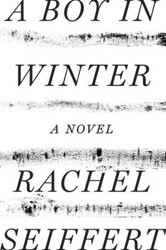When you write experimental fiction you run the risk of your ambitious intelligence overwhelming the more prosaic plot of your story. You can generally gauge the success of experimental fiction in the extent to which the technique adds to the story and not the other way around. In his new book, The Canvas, the German novelist Benjamin Stein runs into this ambiguity but emerges the better for it. Stein’s experimental ambition lies in his choice to present a story from two sides, not necessarily the most crazy concept, but this gives the reader the choice as where to begin — with the story of Jan Wechsler or Amnon Zichroni.
I started with the Jan Wechsler half. Wechsler finds himself adrift in the haze of memory. Events in his life force him to rethink his whole existence and identity when a mysterious suitcase arrives at his home with his name and signature on it, but full of objects he cannot recognize. This suitcase takes on a metaphysical mystery that attempts to pin down his true self, as slippery as that sounds. In doing so, adding another layer to this already dense book, Stein uses this plot to explore the nature of tradition, of history, and of the weight of the past on our present selves. The fact that Stein can juggle all these conceptual factors while creating a sustained and compelling narrative attests to his talent and achievement.
The two parts of the story fill each other in. In the Amnon Zichroni part we learn that Zichroni was the psychoanalyst of a Holocaust memoirist, Mirsky, who Jan Wechsler exposed to the world as a fraud. Based loosely on the story of Binjamin Wilkomirski, who wrote a fraudulent Holocaust memoir in 1995, Stein takes that story and adds numerous metaphysical layers that will appeal to enthusiasts of history and philosophy alike. While the choose-your-own-adventure feels somewhat like an unnecessary gimmick, at no point does it overwhelm the compelling and intelligent nature of the book.

Fiction
The Canvas
- Review
By
– October 23, 2012
Joseph Winkler is a freelance writer living in New York City. He writes for Vol1Brooklyn, The Huffington Post, Jewcy, and other sites. While not writing, Joe is getting a Masters in English Literature at City College. To support his extravagant lifestyle, Joe also tutors and unabashedly babysits. Check out his blog at noconversationleftbehind.blogspot.com.
Discussion Questions

Jewish literature inspires, enriches, and educates the community.
Help support the Jewish Book Council.


